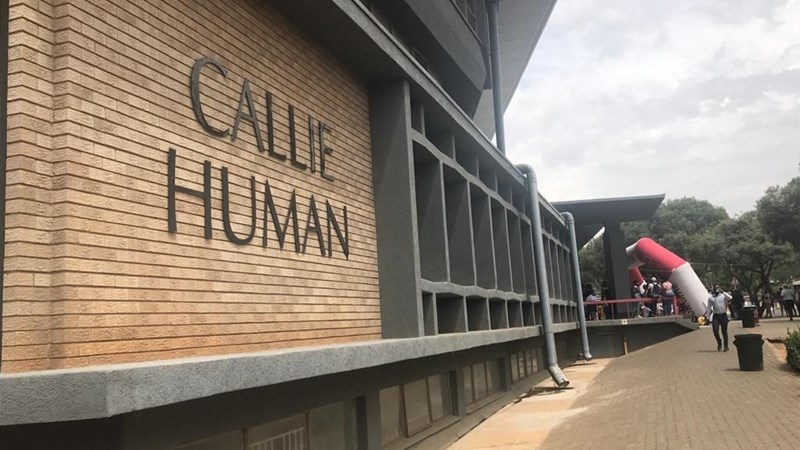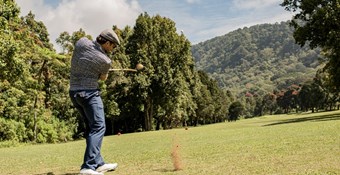Central SA
Solidarity takes UFS to court over vaccination policy─── 14:54 Thu, 20 Jan 2022

Solidarity says it has launched a court case against the University of the Free State (UFS) on its vaccination policy which compels students and employees to get the Covid-19 vaccine.
The union says the blanket approach on vaccinations is a violation of human rights and does not take into account the unique situation of individuals.
Connie Mulder, head of the Solidarity Research Institute, says they have received more than 300 complaints requesting litigation on the matter.
Mulder adds that their bid is in an effort to seek legal certainty on mandatory vaccination.
“We have been against mandatory vaccinations from the very start, saying quite frankly that it’s not necessary to get a vaccination programme. It simply won’t work and that is why we are now approaching the courts to get legal certainty about what is the status of mandatory vaccinations,” he says.
“Especially given the fact that several employers have now embarked on mandatory vaccinations campaigns locking out employees or limiting access to workplaces on people based on their vaccination status. I am aware of the opinion that this will polarise and politicise the vaccination programme. Vaccination is an exception, not a rule,” adds Mulder.
In December 2021, the South African Federation of Trade Unions (SAFTU) said it plans to approach the Constitutional Court to seek a declaratory order on the issue of mandatory vaccination.
Meanwhile, Labour and Employment Minister, Thulas Nxesi, said government was working to finalise consultations on the introduction of mandatory Covid-19 vaccinations in the country.
Delivering the keynote address at the National Economic Development and Labour Council (Nedlac) annual summit in Johannesburg in 2021, Nxesi said the government had already received input from representatives of government, business, and labour about what should be done to facilitate the introduction of mandatory vaccinations, especially in the workplace.
Earlier, Constitutional law expert Professor Pierre de Vos said making vaccination mandatory could be legally justifiable in some cases.
Many major companies were initially hesitant to venture into the debate over whether to mandate vaccines for their workers or not.
Some advocated giving their employees access to the vaccine as early as possible, with the hope that a significant majority of people would opt to get the shots voluntarily.
However, that has not been the case in reality as some experts argue that making vaccination mandatory would violate people’s rights.
UFS statement: 27 November 2021
The Council of the University of the Free State (UFS) carefully considered and approved a vaccination policy for the institution during its meeting on 26 November 2021.
The aim of the COVID-19 Regulations and Required Vaccination Policy is to regulate access of staff, ad hoc contract workers, and students to all the university’s premises. The policy will be implemented as from 14 February 2022.
“The policy implies that the university does not force anyone to be vaccinated, but the institution has the right to require vaccination if you want to access the institution’s premises in order to protect our staff and students,” said Prof. Francis Petersen, UFS Rector and Vice-Chancellor.
Fiduciary duty to ensure safe and caring environment
“The UFS is a residential university that requires face-to-face engagement by both staff and students, and operational requirements entail that our staff, ad hoc contract workers, and students are regularly exposed to large groups on the three campuses. We have a fiduciary duty to ensure a safe and caring environment and to meet the health and safety obligations on the campuses,” said Prof. Petersen.
Since March 2020 and within the national lockdown levels, the institution has followed a predominantly online emergency-remote learning-and-teaching programme with a minimalistic approach to the return of staff and students to campus. Where possible and within the national lockdown levels, staff members have been working from home, except essential service employees and academic staff that were required to support students studying on campus in carefully managed face-to-face classes/interactions.
“The viability of consistent remote working and study conditions is not in line with the culture and strategy of the UFS. Although a blended learning approach is supported, sole online learning will be detrimental to the quality of our graduates and the experience that the institution should offer to its students as a residential university,” said Prof. Petersen.
Encouraging university community to vaccinate
The institution is greatly concerned about the number of staff, students, and ad hoc contract workers who have tested positive for COVID-19 since the commencement of the national lockdown. The pandemic has resulted in numerous individuals being placed in quarantine, testing positive or being incapacitated due to COVID-19 complications and deaths. “We believe that the policy will be a contributing factor in encouraging the entire university community to make the responsible decision to vaccinate,” said Prof. Petersen.
Although the policy does not force anyone to vaccinate, it is aimed at restricting campus access to vaccinated persons, while at the same time considering applications for exemption based on medical and religious grounds, natural immunity objections, other legally acceptable exemptions, or those participating in clinical trials approved by the South African Health Products Regulatory Authority (SAHPRA). Employee and Student Vaccination Exemption Committees will evaluate applications for exemption. These committees will operate independently, and will include medical, religious, legal and psychology experts.
Vaccinated persons will be required to upload their vaccination certificates on an electronic platform to obtain access to campus. Staff, ad hoc contract workers, and students who are not vaccinated, who do not have an approved exemption or deferral, and who do not have a SARS COVID-19 PCR negative result that is not older than a week, will not be allowed access to the campuses or facilities. Only vaccinated students will be allowed to access on-campus accommodation.
Students who are not vaccinated by 14 February 2022, will not be prevented from registering for the academic year, but can only access the campus if vaccinated or granted an exemption.
Consultation process and thorough risk assessment
“The development of the policy was consulted widely with relevant internal stakeholders, among others, the university’s Senate, supporting it with an overwhelming 84%. The university also followed due process by referring the proposed policy to all its governance structures for consultation – including obtaining opinions from reputable legal firms in the country,” said Prof. Petersen.
According to Prof. Petersen, the UFS has conducted a thorough risk assessment of the implementation of the policy, and a contingency plan is in place that will be implemented in the absence of full implementation of the policy. “We will consider following a flexible approach if we initially find that the rate of vaccinations is low. We will work tirelessly with government to accelerate the rate of vaccinations with the ultimate goal to obtain a high enough level of vaccinations to limit the transmission of the COVID-19 virus and create a safe work and study environment for our staff and students,” he said.














